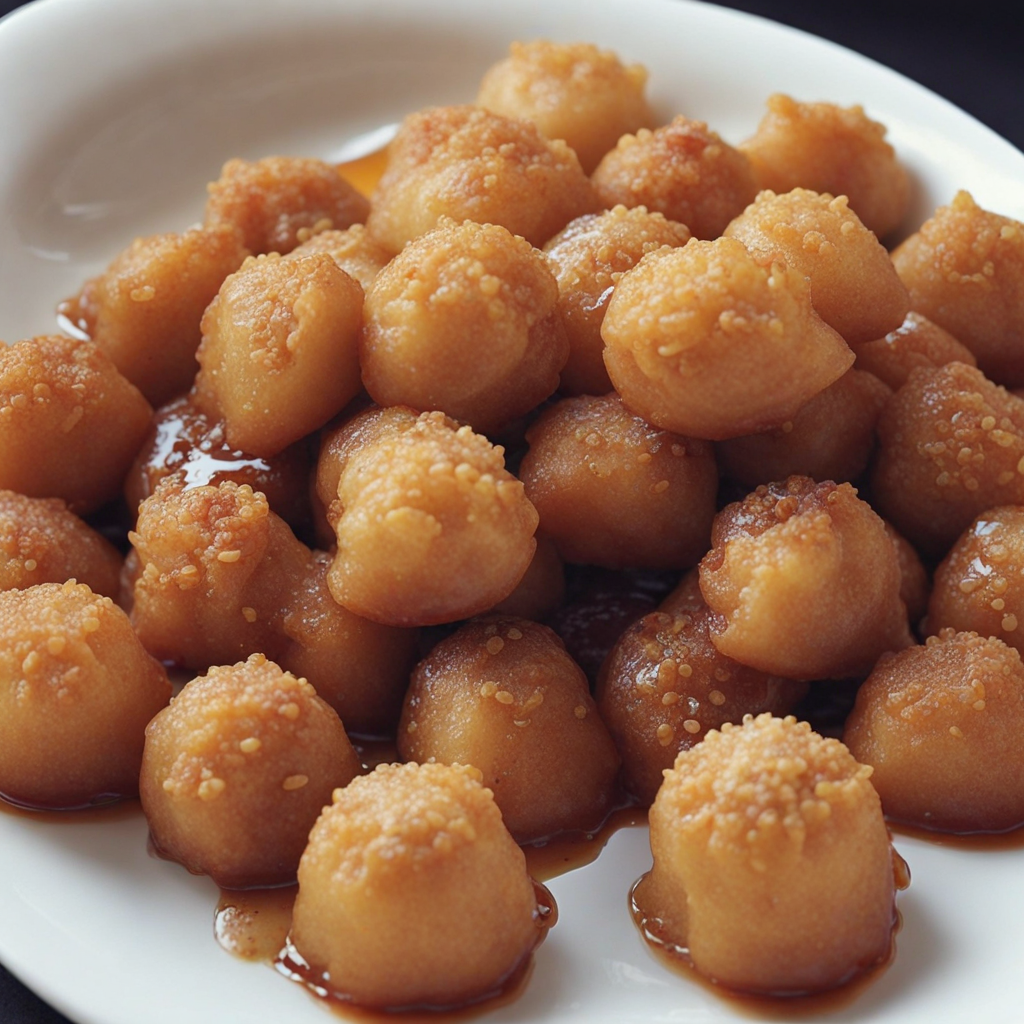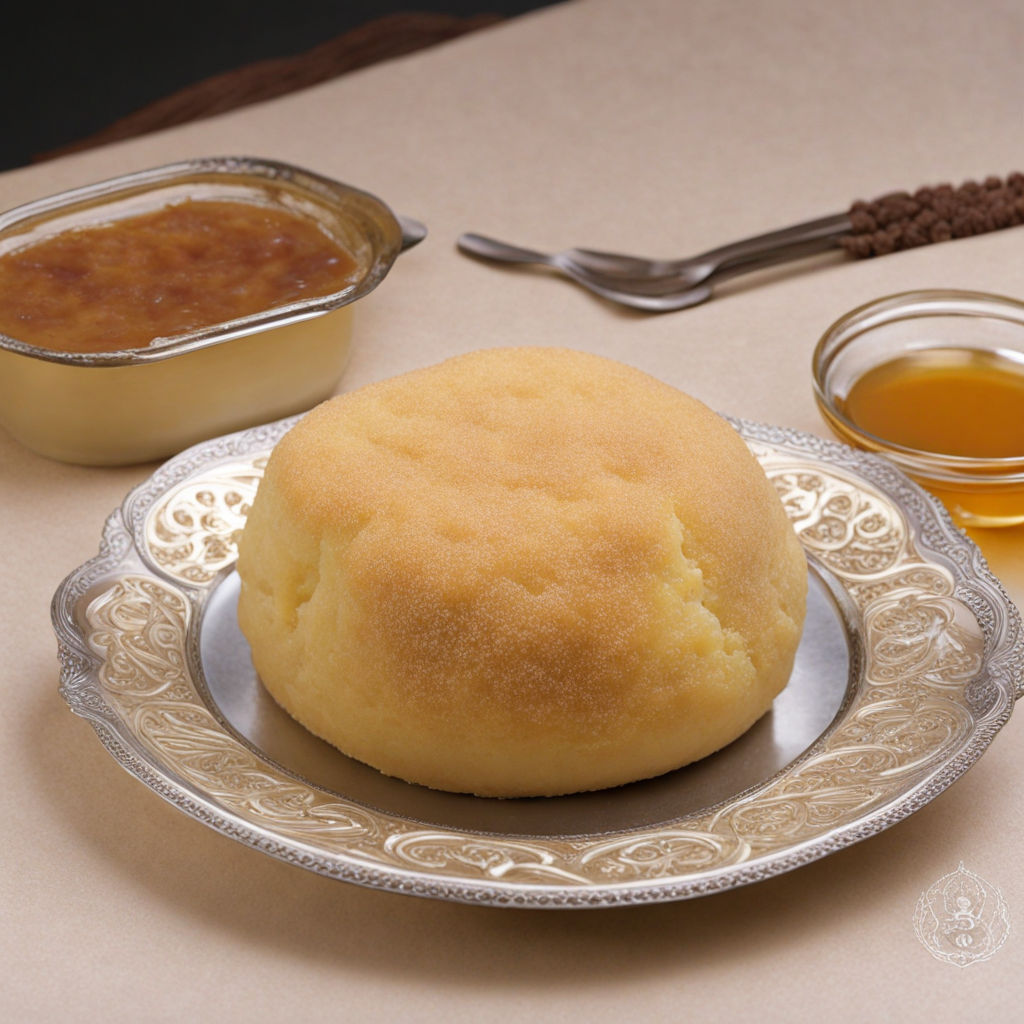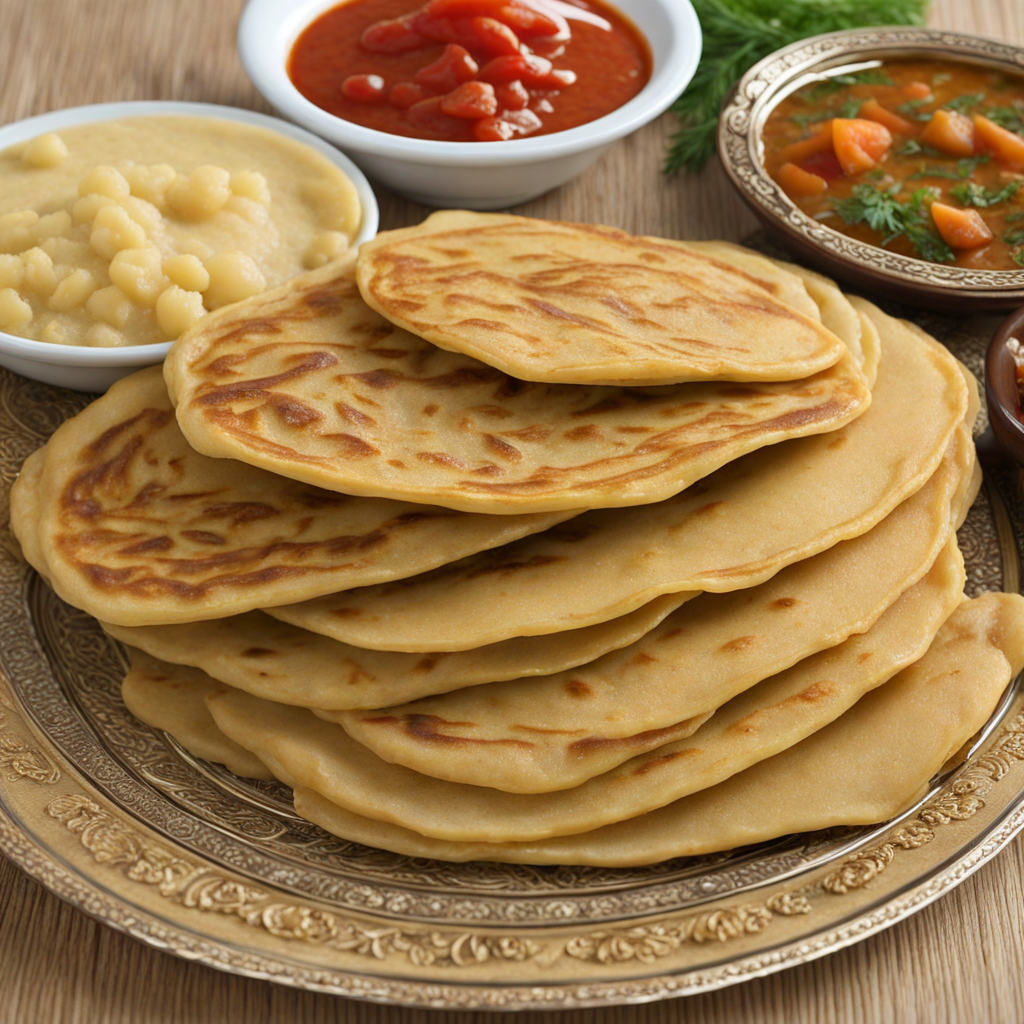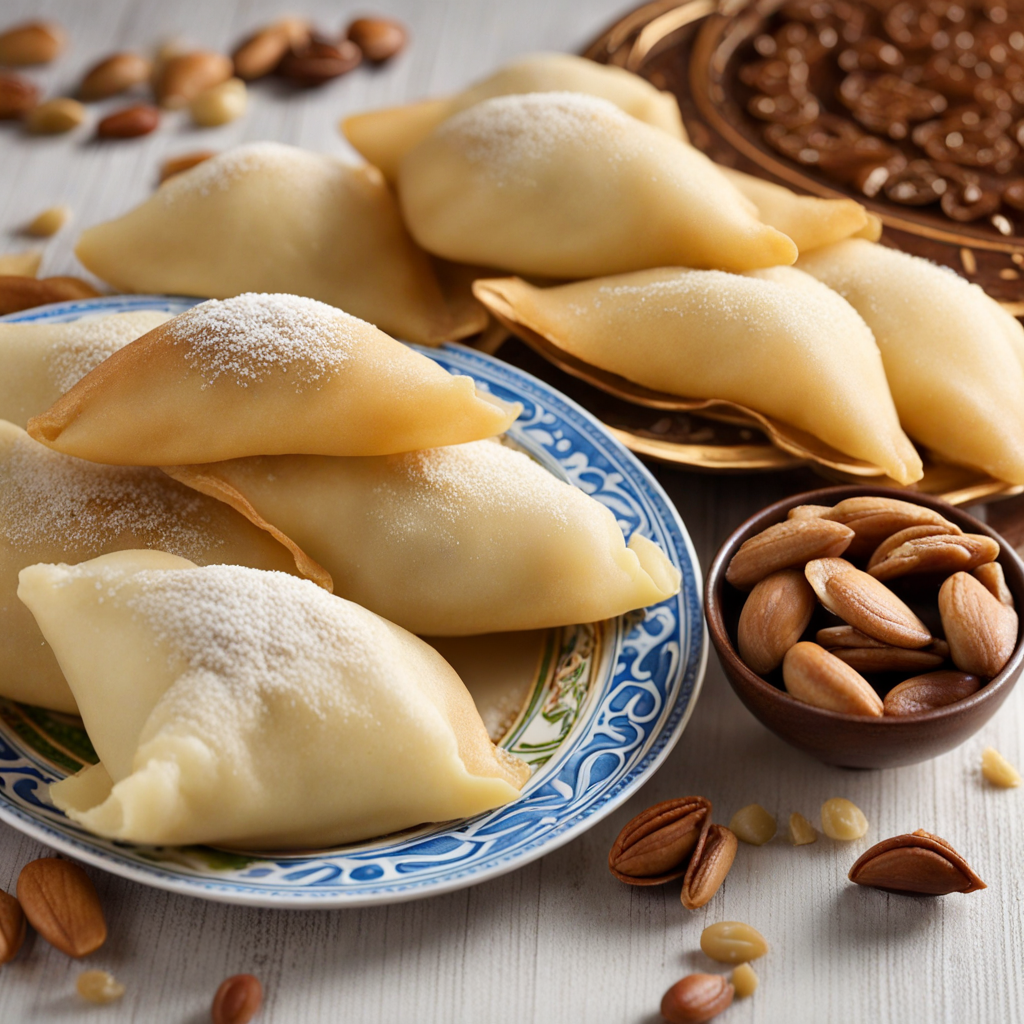Luqaimat
Luqaimat, a beloved traditional dessert from Saudi Arabia, offers a delightful experience for those seeking new flavors. These small, golden-brown dumplings are made from a simple mixture of flour, sugar, yeast, and water, resulting in a light and fluffy texture. When fried to perfection, they boast a crispy exterior that gives way to a soft, airy inside, creating a satisfying contrast in every bite. The dough is typically flavored with hints of cardamom or saffron, adding a warm, aromatic touch that elevates this treat beyond mere sweetness. Once cooked, Luqaimat are generously drizzled with date syrup or honey, enhancing their sweetness and imparting a rich, caramel-like depth of flavor. The sticky syrup clings to the dumplings, making them irresistibly tempting and inviting. Often garnished with sesame seeds or a sprinkle of crushed pistachios, they not only taste delightful but also present beautifully on a serving platter, making them a popular choice for gatherings and festive occasions. Eating Luqaimat is a sensory experience that embodies the warmth of Saudi hospitality. Traditionally enjoyed during Ramadan, they are often served alongside Arabic coffee or tea, creating a perfect balance between sweet and savory. Each bite is a journey into the heart of Saudi culture, allowing you to savor the intricacies of a comforting dessert that has stood the test of time. Once you try Luqaimat, you'll understand why it holds a special place in the hearts of many in the region.
How It Became This Dish
The Sweet Journey of لقيمات: A Culinary Treasure of Saudi Arabia Within the vibrant tapestry of Saudi Arabian cuisine, few dishes encapsulate the essence of cultural tradition and communal joy quite like لقيمات (Luqaimat). These delectable, golden-brown dumplings, often compared to doughnuts, are a beloved dessert enjoyed during festive occasions and daily life alike. Their history is as rich and layered as their flavor, offering a glimpse into the heart and soul of Saudi Arabian culture. Origins and Ingredients The origins of لقيمات can be traced back to the early Islamic period, around the 7th century CE, when culinary practices began to flourish in the Arabian Peninsula. While the exact birthplace of Luqaimat is difficult to pinpoint, its roots are intertwined with ancient Arab traditions and the influence of trade routes that brought spices and cooking techniques from across the Middle East and beyond. Traditionally, the ingredients for Luqaimat are simple yet significant: flour, water, yeast, and sugar form the base, which is deep-fried to a crispy exterior and then soaked in a syrup made from dates or sugar infused with cardamom and saffron. The use of these ingredients reflects the local availability of resources, as well as the influence of Islamic dietary laws that emphasize wholesome and permissible foods. Cultural Significance Luqaimat holds a special place in the hearts of many Saudis, transcending mere flavor to embody cultural identity. The dish is often served during Ramadan, the holy month of fasting, as a sweet treat to break the fast after sunset. The act of preparing and sharing Luqaimat during this time fosters a sense of community and familial bonding, reinforcing the values of hospitality and generosity intrinsic to Saudi culture. In addition to Ramadan, Luqaimat is a staple at weddings, festivals, and public celebrations, where families and friends gather to enjoy the dish together. The preparation of Luqaimat is often a communal activity, with family members coming together to mix, fry, and dip the dumplings in syrup. This collective effort not only enhances the flavor but also strengthens social ties, making Luqaimat a symbol of togetherness. Evolution Over Time As Saudi Arabia has experienced significant social and economic changes throughout the 20th and 21st centuries, so too has the preparation and consumption of Luqaimat evolved. The advent of modern technology has introduced new cooking methods and ingredients, while globalization has expanded the culinary landscape, allowing for fusion with international cuisines. In contemporary Saudi Arabia, one can find variations of Luqaimat that incorporate innovative flavors and ingredients, such as chocolate, pistachio, and even matcha. These modern twists reflect the younger generation's desire to experiment with traditional recipes while honoring their heritage. Moreover, the rise of food photography and social media has amplified the popularity of Luqaimat, with visually appealing presentations capturing the attention of food enthusiasts both locally and globally. Despite these changes, the core essence of Luqaimat remains unchanged. The dish continues to evoke memories of family gatherings and festive celebrations, serving as a reminder of the importance of cultural roots. Street vendors and restaurants across Saudi Arabia still serve classic Luqaimat, often accompanied by a variety of syrups and toppings, catering to both traditionalists and adventurous eaters alike. The Culinary Experience The experience of enjoying Luqaimat is as important as the dish itself. The preparation involves a rhythmic process: mixing the dough until it reaches the perfect consistency, allowing it to rise, and carefully frying each piece until it achieves that iconic golden hue. The anticipation builds as the dumplings are removed from the oil, their warm aroma filling the air. Once ready, the Luqaimat are generously drizzled with syrup or served with a side for dipping. The first bite is a sensation of crunch giving way to a soft, airy interior, a delightful contrast that brings joy to the palate. The sweetness of the syrup, often enhanced with cardamom, adds depth, creating a harmonious balance of flavors. Conclusion In conclusion, لقيمات is more than just a dessert; it is a culinary emblem of Saudi Arabian culture that has withstood the test of time. From its humble origins to its esteemed position in modern cuisine, Luqaimat continues to evoke nostalgia and foster connections among people. As Saudi Arabia embraces the future while honoring its past, Luqaimat remains a cherished link to its rich heritage, celebrating the flavors, traditions, and community spirit that define this remarkable nation. Whether enjoyed at a bustling street market or during a quiet family gathering, the experience of savoring Luqaimat is a sweet reminder of the enduring power of food to unite hearts and create lasting memories.
You may like
Discover local flavors from Saudi Arabia







